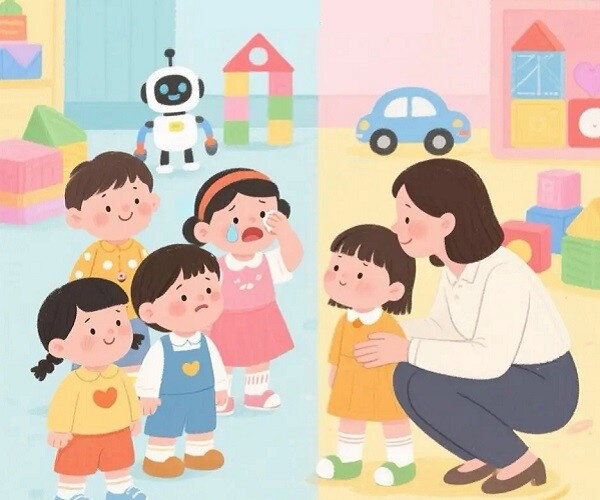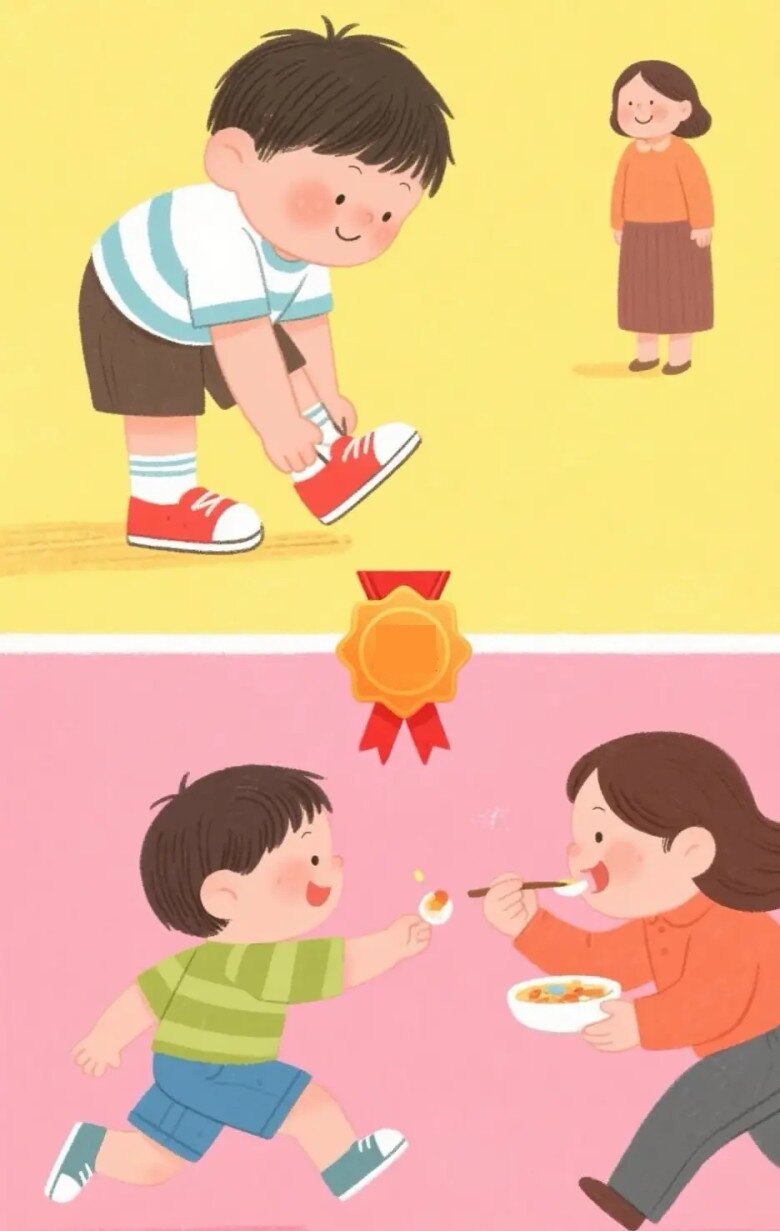What’s the secret behind these tear-free children? Preschool teachers have identified four types of families with distinct parenting styles that influence their children’s psychology and behavior. Families who foster independence and create a safe, positive environment tend to produce children who are more confident when facing new experiences.
If you’re a parent who wants to enhance your parenting approach, consider implementing methods that encourage your child’s self-confidence.


Children gain independence when parents let go
Preschool teachers observe that children who don’t cry on their first day of school have often developed self-reliance at home.
For instance, they are encouraged to eat and dress independently, without parental urging. When faced with challenges, these children don’t resort to crying or tantrums but instead, attempt to resolve issues on their own.
Short-term separation training is also common in these families. Parents may leave their children alone within sight, such as playing with toys for 10 minutes, so they can get used to the feeling of their mother not being by their side.
As a result, when they start preschool, they are less likely to feel overwhelmed by their mother’s absence and quickly adapt to the new environment.


Parents’ cheerful attitude fosters children’s social skills
Some children take the initiative to greet their peers and even help teachers comfort crying classmates. These children often come from families with the following characteristics:
Outgoing family: Parents enjoy taking their children outdoors and encourage them to greet strangers.
Optimistic and positive family: Instead of complaining about difficulties, parents maintain a positive attitude and influence their children to do the same.
Close-knit family: Parents don’t just sit next to their children while being engrossed in their phones; they actively engage in games and conversations with their kids.
Consequently, these children don’t feel anxious when entering a new environment but instead, view it as an opportunity to make more friends at preschool.


Familiarizing children with preschool ahead of time
Some savvy parents use the power of “familiarity” to reduce their children’s anxiety:
Preschool visits: Taking children to visit the preschool, play on the playground, and explore the toys helps reduce the sense of strangeness.
Role-playing preschool life: Playing teacher-student role-playing games at home allows children to become familiar with daily preschool activities.
Positive guidance: Instead of threatening, “If you don’t behave, I’ll send you to preschool,” try saying, “You’ll be able to learn new things and make friends at preschool.”
By doing so, when children enter their new class, they won’t feel like they’ve been “thrown” into a scary place but will instead view it as a place to play and make friends.


Warm family atmosphere makes children feel safe
Families with emotionally resilient children often exhibit the following traits:
Harmonious relationship between parents: Refraining from arguing in front of their children creates a sense of “home as a safe place.”
Keeping promises: When parents promise to pick their children up after school, they arrive on time, building trust.
Friendship with children: Parents pay attention to their children’s emotions and needs.
These children feel secure and don’t worry about the notion of “Mom doesn’t want me anymore,” which enables them to adapt more easily to new environments.
What can parents do to help their children adjust better? Here are three practical suggestions:

Don’t wait until the new school year to prepare: Adjust your child’s schedule one to two months in advance to develop self-care abilities. This helps children adapt to a new routine, fostering independence and a sense of responsibility.
Say a firm goodbye: Don’t hesitate when dropping your child off at preschool. Prolonging the goodbye will only make them cry louder. A simple, “See you this afternoon,” followed by a quick departure, reassures them that you will be back as promised.
Trust the teachers: Refrain from peeking through the windows, as your anxiety may transfer to your child. Have faith in the teachers’ abilities and expertise; they are trained to handle such situations. If you display confidence, your child will also feel more secure about being away from you.
Whether or not a child cries at preschool is not a reflection of their character but rather, a result of their family’s parenting style. If children are taught independence and self-confidence from an early age, they will more easily adapt to new environments. Encourage your children to participate in group activities, make friends, and explore. If your family falls into one of the four categories mentioned above, rest assured that your child will approach preschool with confidence.
Each child is unique and will have their own approach to change. However, with careful preparation and a supportive environment, parents can help their children embark on this new stage of life with a positive and confident mindset.

































